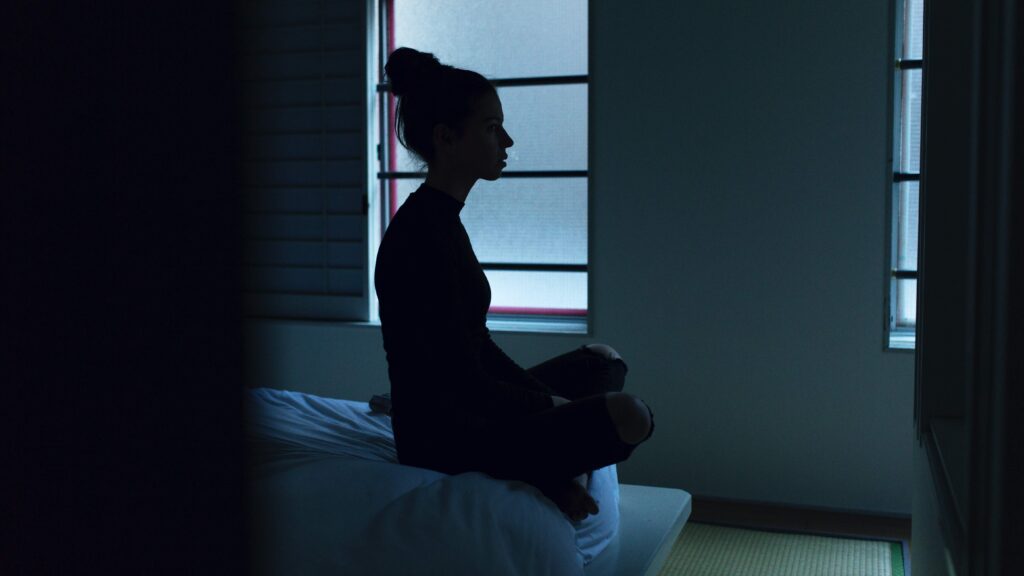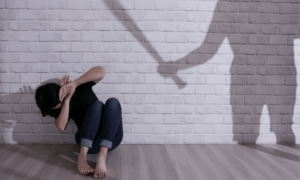This website uses cookies so that we can provide you with the best user experience possible. Cookie information is stored in your browser and performs functions such as recognising you when you return to our website and helping our team to understand which sections of the website you find most interesting and useful.
What is Trauma (Pt. 2) – Types of Trauma (1 of 2)

While trauma is a collective psychological wound from the hard things you’ve lived through in life, there are different types of trauma that you can carry. Today we’re discussing 3 of them.
Laura
- February 20, 2024
Today we’re continuing our series on Trauma by starting a discussion on the different types of trauma.
This series is here to help you understand what trauma is, what the signs and symptoms are, and how and why God created you in a way that includes trauma. We’ll cover the basics of this mental health dysfunction, all the way into some of the science of how it wires into your memories and nervous system. This will give you the foundation for understanding how to heal any trauma you may be carrying. Because trauma is one of the main causes of stress in life as a human.
* This is the second in a series of 10 posts called “What is Trauma”. Learning about trauma can be overwhelming and even triggering. I encourage you to go slow, letting God lead you to where He needs you right now. And if at any point your get triggered and need help, there are free and paid resources linked at the bottom of each post. They’ll help you out of those triggers, back into the state of peace in your mind and body. You deserve that, so don’t shy away from help if you need it. I’m praying for you.
The Types of Trauma
Today I want to introduce you to the 5 different types of trauma. If you missed the last post, I introduced what trauma is, which will lay a great foundation for understanding these different types.
5 Different Types
While trauma is a collective psychological wound from the hard things you’ve lived through in life, there are different types of trauma that you can carry. These depend on the different circumstances from your life, and the world around you, when you traumatized.
These different types are:
1. Acute Trauma (also known as Shock Trauma)
This is the trauma you’ll carry from one single event.
2. Chronic Trauma (also known as Repetitive Trauma)
This is the trauma you’ll carry from repeated and prolonged exposure to highly stressful events (physically, mentally, emotionally and/or spiritually). These events include child abuse, bullying, domestic violence and war.
3. Developmental Trauma
This is the trauma you’ll carry from chronic and prolonged exposure to multiple highly stressful events in early childhood (physically, mentally, emotionally and/or spiritually). This includes abuse, neglect and other stressful events, typically with the people closest to you (like your caregivers).
4. Complex Trauma
This is the trauma you’ll carry from chronic and prolonged exposure to multiple highly stressful events (typically physical in nature), from abuses from other people (often those closest with you). This is often found in early childhood, and includes sexual abuse, physical abuse, community violence and war.
5. Secondary Trauma (also known as Vicarious Trauma or Caregiver Fatigue)
This is the trauma you’ll carry when you’re in close contact with someone else who has trauma. You’ll develop trauma symptoms over time from being in close proximity to them and their trauma symptoms.
Multiple Types of Traumas
It’s possible to have multiple types of trauma, and we see this most with complex trauma. By nature, it automatically includes chronic trauma, and when you’re a child, it will also include developmental trauma as well.
When this happens it’s also called complex trauma (I’m sorry no one came up with a better name).
We’ll talk about complex and developmental traumas along with combination traumas in the next post.
In this post, we’re going to start by discussing 3 of these types: acute, secondary and chronic traumas.
Acute, Chronic and Secondary Traumas
Acute (Shock) Trauma
Acute trauma, also known as shock trauma, is the trauma you’ll carry from one single event.
It often comes when you’ve been through one:
- Car accident
- Natural disaster
- Sexual assault
- Physical assault
- Medical Accident
- Community violence (like a riot)
- School violence (like a shooting)
- Act of terrorism
Regardless of how severe the danger was to your life, these one time events are all types of Acute (or shock) trauma. The wounding you carry will be around that event alone, not around your whole life (like we’ll see in some of the more severe kinds of trauma).
Chronic (Repetitive) Trauma
Chronic trauma, also known as repetitive trauma, is the trauma you’ll carry from repeated and prolonged exposure to highly stressful events (physically, mentally, emotionally and/or spiritually).
It often comes when you’ve been through things like:
- Child abuse
- Bullying
- Domestic Violence
- War
These are often at the hands of other people (often people you know, who are close to you).
The wounding you carry from chronic trauma will be deeper and more severe than with acute trauma. This is because your brain never gets a break from the danger. When the abuse/danger is ongoing, your brain loses the ability to remember that safety even exists. Eventually believing that safety will never exist for you (again).
This type of trauma re-wires your brain to believe that you will always be in danger now. Which creates a massive effect on your ability to find peace.
When your brain loses the ability to believe it’ll ever have peace again, it suppresses any hope you had at life getting better. This can cause your light to go out (mentally/emotionally and spiritually).
Secondary (Vicarious) Trauma
Secondary trauma, also known as vicarious trauma, is the trauma you’ll carry when you’re in close contact with someone else who has trauma. Overtime, you’ll develop trauma symptoms from being in close proximity to them and their trauma symptoms.
Trauma changes the nature of someone’s behavior, often turning it anxious or aggressive. Being in close proximity to these behaviors can slowly hurt you (mentally and emotionally) over time. This wounding can be severe enough to be a trauma.
It often shows up in:
- Spouses of those with trauma
- Military wives of those with trauma
- Family members of those with trauma
- Spouses of those with TBIs (traumatic brain injuries)
- 1st responders (paramedics, fire fighters)
- Police officers
- ER doctors and nurses
This type of trauma is often the most overlooked, as it’s the one with trauma that get the attention. But when you’re doing life with traumatized people, whether in your home or through your profession, it impacts you mentally and emotionally.
God designed us to have healthy relationships, and trauma is a mental health dysfunction that impacts the ability to live that. They’re behaviors can hurt you, whether in little ways or big ways. Over time that hurt can cause damage to your brain and heart. Especially when you’re close with them, like a spouse, family member or caregiver.
This type of trauma is one of the roots of caregiver fatigue.
Developmental and Complex Traumas
In the next post, we’ll continue our discussion by talking about developmental and complex traumas. We’ll also talk more about the combinations of traumas you can carry (specifically with chronic, complex and developmental traumas).
Do You Have Trauma and Need Help with Your Triggers?
If you’re struggling with trauma triggers and life-altering effects they bring, I have resources for you.
While I always encourage healing in 1-on-1 sessions with a therapist or trauma coach, you’re also going to need help in between those sessions.
Here is a free video of one of my favorite mental health techniques for turning off trauma triggers. It’s a quick 5 minute exercise that will shift you back into the state of peace in your mind and body.
I also have a full Membership of videos and audios (just like the free one) to help you turn off your triggers anytime, anywhere. Some are short exercises to turn off your triggers quickly so you can get back to your life, while others are longer opportunities to turn off your triggers and release the hard emotions that came with them.
You deserve to live and thrive in the state of peace in your mind and body. And God wants that for you.
If you’re struggling with trauma and the damaging effects of it, know that it’s not only ok to get help. It’s beautiful.
From one survivor of this hard life to another,
I’m praying for you ♥︎
– L aura
Want Laura On Your Blog?
Ready to Find Peace in Your Mind and Body?
Join the
Stress Release
for Christian Women Newsletter
mental health resources and encouragement for turning off your stress, releasing your emotions and coming back to the state of peace in your mind and body.




